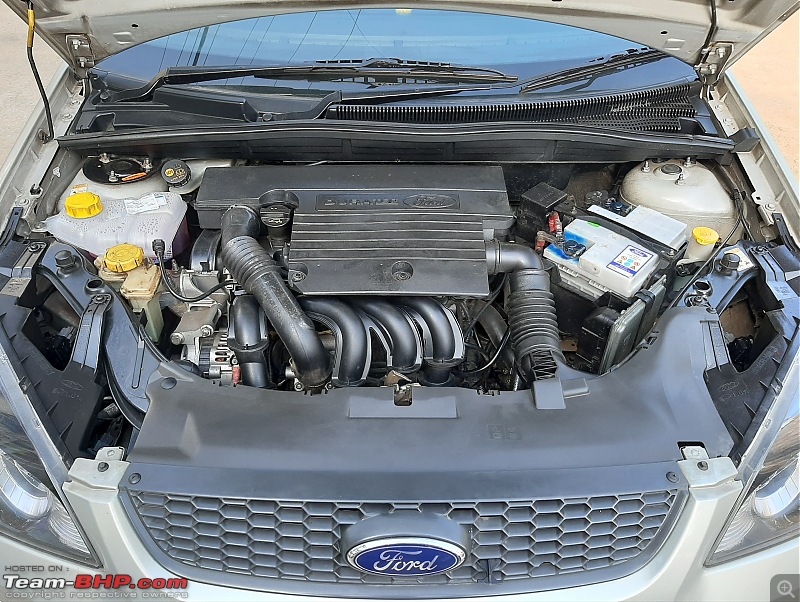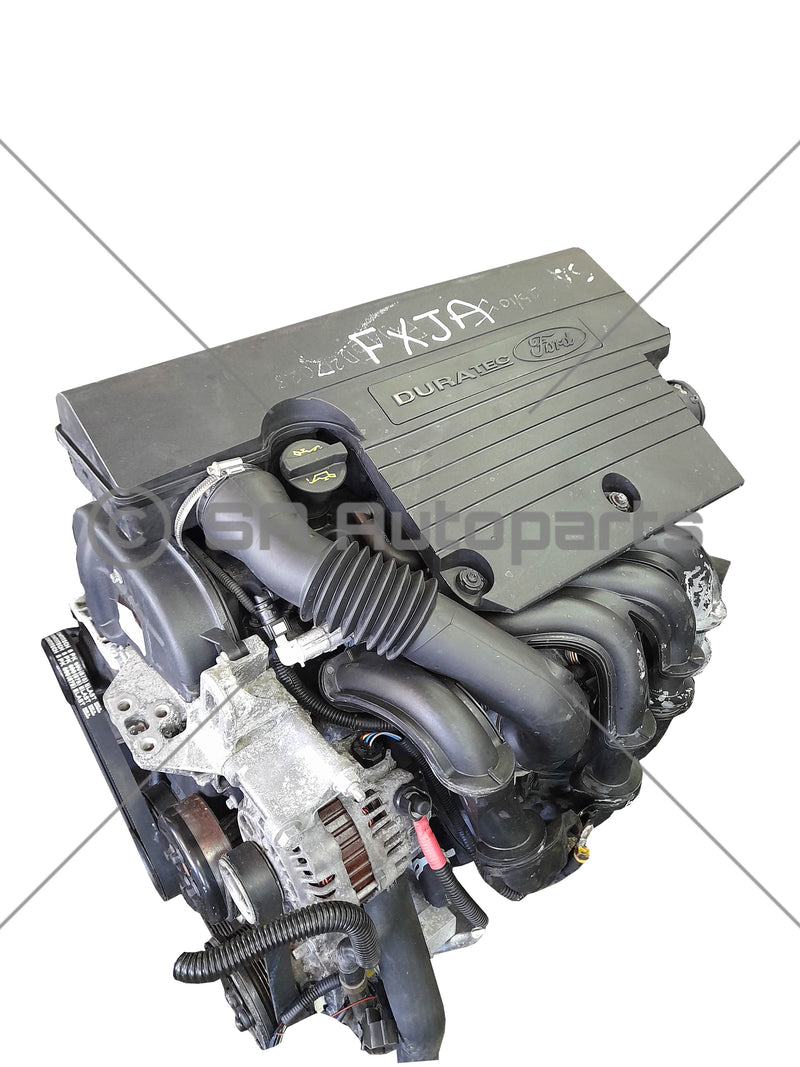Protect Your Investment with Proper Ford Fiesta Engine Maintenance
Wiki Article
The Future of Engines: Developments Driving Lasting Power Solutions
As the automotive sector navigates the critical transition in the direction of sustainability, the future of engines is progressively specified by groundbreaking technologies. Electric engine innovations, alongside promising developments in hydrogen gas cells and biofuels, are reshaping the landscape of power remedies.Electric Engine Advancement
The development of electrical engine developments indicates an essential shift in the aerospace and auto markets, driven by the immediate need for lasting choices to fossil fuels. This change is characterized by substantial innovations in battery technology, power electronic devices, and electric motor design, which jointly enhance the performance and efficiency of electric engines.Recent technologies have actually resulted in the development of lighter, extra energy-dense batteries, such as lithium-silicon and solid-state batteries, which promise longer varieties and much shorter charging times. Furthermore, enhancements in electric motor effectiveness, such as using irreversible magnets and advanced cooling down systems, allow electrical engines to run successfully under differing conditions. These enhancements not just enhance car efficiency but also contribute to a decrease in total energy usage.
Additionally, the assimilation of innovative software application algorithms has maximized energy monitoring in electrical lorries, enabling regenerative braking and anticipating charging techniques. As manufacturers progressively embrace electrical propulsion, the aerospace and automotive sectors are experiencing a paradigm change in the direction of greener technologies. This development not just satisfies regulatory needs however also lines up with customer preferences for eco pleasant transportation solutions, solidifying electric engines as a keystone of future sustainable movement.
Advancements in Biofuels
As the aerospace and automobile industries significantly prioritize sustainable power sources, advancements in biofuels become a complementary option to electric engines. Biofuels, obtained from natural materials such as plants, waste, and algae, provide a cutting-edge avenue for lowering greenhouse gas discharges and dependence on nonrenewable fuel sources.Current research has concentrated on boosting the effectiveness and sustainability of biofuel manufacturing. Second-generation biofuels utilize non-food feedstocks, minimizing competitors with food supply and decreasing environmental impact. Developments in synthetic biology have actually allowed the design of microorganisms to generate biofuels much more successfully, leading to higher returns and lower manufacturing expenses.
Additionally, the development of drop-in biofuels allows for smooth combination right into existing framework, making it possible for a smoother transition for markets generally based on nonrenewable fuel sources. ford fiesta engine. These gas can be used in current engines without alterations, facilitating their adoption across various markets
Investments in biofuel innovation, together with helpful policies, are important to drive development and scalability. As the global area looks for to fight climate adjustment, biofuels use a pragmatic, immediate remedy that lines up with the overarching goal of sustainability in transport and air travel.
Hydrogen Fuel Cell Modern Technology
An expanding number of scientists and business are exploring hydrogen gas cell innovation as a practical option to conventional source of power in transport and energy systems. This modern technology transforms chemical power from hydrogen right into power with an electrochemical reaction, with water as the only result, making it an eco-friendly option.The core of hydrogen gas cells is the fuel cell pile, where hydrogen molecules are split right into electrons and protons. The flow of electrons creates electrical energy, while protons move with a membrane to combine with oxygen from the air, creating water. This process results in high performance and low exhausts, positioning hydrogen gas cells as an important player in the shift to lasting energy.
Considerable innovations have been made in boosting the sturdiness and performance of fuel cells, along with reducing expenses via ingenious production strategies. The development of hydrogen production methods, such as electrolysis powered by eco-friendly energy sources, boosts the sustainability of the overall system. As framework for hydrogen refueling expands and production approaches come to be more effective, hydrogen gas cell modern technology holds terrific pledge for decarbonizing numerous fields, consisting of heavy-duty transport and stationary power generation.
Hybrid Systems and Their Impact
Hybrid systems stand for a substantial development in sustainable engine technology, merging traditional inner burning engines with electric propulsion to optimize power performance and minimize discharges (ford fiesta engine). This dual approach permits automobiles to use both source of power, enabling higher adaptability in power consumption and minimizing dependence on nonrenewable fuel sources

In enhancement to environmental advantages, hybrid systems provide customers a practical change in the direction of completely electrical automobiles. They minimize variety anxiety by incorporating the ease of gasoline with the advantages of electrical propulsion, making them an attractive choice for a wider audience.
The Duty of AI in Engine Design
Leveraging sophisticated formulas and device discovering techniques, the vehicle industry is progressively incorporating expert system (AI) right into engine design procedures. AI boosts the effectiveness and performance of style by examining substantial datasets to identify optimum configurations and performance specifications. This ability permits designers to simulate different operating problems and forecast engine behavior under multiple situations, dramatically decreasing the time and price related to conventional prototyping methods.Moreover, AI promotes the development of advanced materials and combustion processes tailored for sustainability. By maximizing gas efficiency and lessening exhausts, AI-driven layouts straighten with international campaigns targeted at reducing the carbon footprint of automobile engines. Maker understanding formulas can additionally anticipate upkeep needs, resulting in improved dependability and durability of engine elements.
Additionally, AI is crucial in the assimilation of electrification modern technologies, such as hybrid systems, where it can optimize battery management and power recovery processes. As the market relocates in the direction of even more lasting power options, the function of AI in engine design becomes progressively important, driving development and boosting the efficiency of future engines. Eventually, the collaboration in between AI and engine style heralds a brand-new age of smarter, cleaner, and more efficient automobile modern technologies.

Conclusion
Finally, the future of engines is being shaped by a convergence of ingenious modern technologies that focus on sustainability. Electric engine advancements, biofuel advancements, hydrogen fuel cells, and crossbreed systems jointly add to a substantial decrease in emissions and environmental impact. Furthermore, the combination of man-made knowledge in engine layout boosts performance and efficiency. These transformative remedies emphasize a dedication to developing a cleaner, more sustainable automotive landscape, ultimately Click Here benefiting both society and the atmosphere.Electric engine advancements, along with encouraging growths in hydrogen gas cells and biofuels, are improving the landscape of power remedies. Furthermore, enhancements in electric motor efficiency, such as the usage of irreversible magnets and advanced cooling systems, make it possible for electrical engines to run effectively under differing problems. By maximizing gas efficiency and reducing emissions, AI-driven layouts line up with global campaigns intended at minimizing the carbon impact of vehicle engines. As the industry relocates in the direction of more lasting power options, the role of AI in engine style becomes significantly essential, driving innovation and improving the performance of future engines. Electric engine advancements, biofuel developments, hydrogen gas cells, and hybrid systems jointly contribute to a substantial reduction in exhausts see here and environmental influence.
Report this wiki page